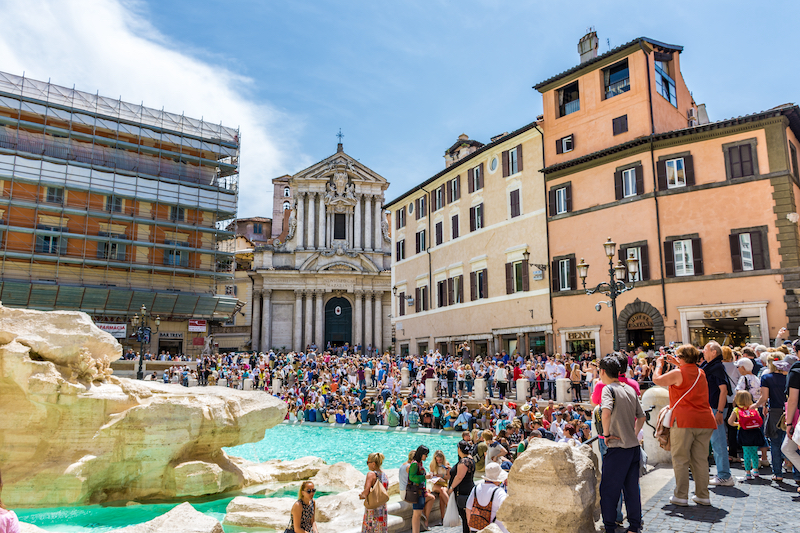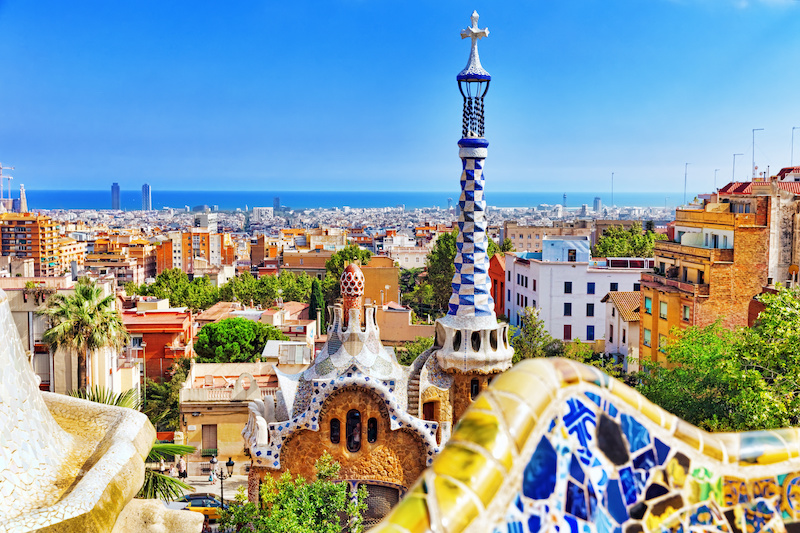Posts Tagged With: overtourism
There are 3 articles tagged with “overtourism” published on this site.

Joining a growing number of countries fighting back against overtourism, The Maldives will usher in the new year with a sizeable increase in tourism taxes (The President ratifies new amendments to three taxation acts – MIRA – Maldives Inland Revenue Authority).
Effective December 1, the departure tax for foreign passengers will increase to $50 from $30 for foreign travelers in economy class, and to $120 from $60 in business class. The tax will remain unchanged for first class ($90) and private jet ($120).
Then on January 1, the Green Tax will double, from $6 to $12 per night per person (not counting children under two).
And on July 1, the tourism tax will increase to $17 from $16.
Most resorts plan to collect the $6 Green Tax at check-in, reports Koveli Travel.
The changes come as many destinations take a second look at how the surge of new tourists is impacting their quality of life. Last month Bali began charging international visitors an entry tax of 150,000 rupiah (£7.50); Venice recently imposed a fee of up to €5 for day visitors; and Hawaii is considering a bill suggesting a $25 “climate tax.”

Airfares are crazy, baggage handlers are on strike, and it’s 100 degrees outside. And this month, a tide of regulations, taxes, fees and protestors is asking people to please just stay away.
But nothing, it seems, will stem the tide of tourists this summer. Still, the world’s top destinations are hoping new provisions will make the crowds manageable—even if that means restricting access to those who can afford to pay up for the privilege of visiting.
Just this month, Norwegian Cruise Line cut a deal with the city of Venice to use motor boats to shuttle groups of passengers rather than parking its cruise ships too close; starting in January, the city also will institute a new tax for day-trippers. Barcelona capped the size of tour groups walking its streets and made the use of megaphones illegal, and anti-cruising protests recently made headlines in Norway. Marseille, the oldest city in France, introduced a tourist quota and reservation system to visit the famous Calanque de Sugiton, allowing only 500 visitors a day rather than the usual 3,000, and an Outside the Walls system that deploys 50 seasonal workers at the busiest tourist spots to manage the flow of people. Corsica capped the number of tourists allowed to visit the island; tourists to Lavezzi Islands, Restonica Valley and Bavella Needles must have a prior reservation.
Bhutan, which traditionally restricts the number of tourists in a given year, is upping its mandatory visitor’s fee from $65 USD to $200 per day. In Italy, the Amalfi Coast has restricted the number of tourist automobiles on its coastal road. Rome, Amsterdam and Dubrovnik are likewise considering measures aimed at moderating the crowds of tourists on their streets and at popular points of interest.
Domestic destinations not immune
In the United States, too, the locals in the most popular destinations are up in arms over the crowds. Two years of peaceful coexistence with nature during Covid lockdowns reminded many of the beauty of their quiet vistas—and this summer’s crazy surge of travelers has run headlong into a shorthanded service industry, making tourists more cranky, demanding, and unwelcome.
The national parks and our favorite vacation state of Hawaii have cut the crowds with mandatory registration systems. In Hawaii, visitors must get a number not just to visit Pearl Harbor, but also for Hanauma Bay, Haleakala at sunrise, Maui’s Waianapanapa State Park, Haena State Park on Kauai and Diamond Head on Oahu. Even the bar at Duke’s Waikiki is now reservations-only.
On the Great Lakes, members of the expanding cruise ship industry—including newcomer Viking Cruises, which is bringing the biggest ship, the 665-foot Viking Octantis, carrying 378 passengers—have already or are expected to soon agree to a series of sustainability initiatives in response to the increasing traffic.
In Glacier Bay, Alaska, the National Park Service has started an unannounced inspection system under which third-party inspectors will randomly board ships to monitor their compliance with environmental standards.
For travel advisors, meanwhile, the new regulations are one more thing to track, one more form to fill out—but also one more reason for customers to seek professional advice.
Some industry insiders predict destinations will come to rethink their decisions when they begin to feel the pinch of lost visitor revenues; others say the rules will just shift the crowds from one city to the next. Most customers will do what they must to get where they want to go—and by and large it is the destinations, not the customers, that are concerned.
“Like many things in today’s world, there is a group of clients and potential clients that take these concerns and causes to heart. I see a couple of hot buttons in a few of these anti-cruise posters that I am sure will make some reconsider,” says Dave Sobczak at Holiday Road Travel – Independent by Liberty Travel in Collegeville, PA. “I have to wonder though, if moving people to alternate ways to visit the country actually solves the problem, if there is in fact a problem.”

Tourism has returned to Spain in a massive wave of visitors to Barcelona. In response to complaints about overtourism, municipal authorities in Barcelona have taken new measures seeking to crack down on tour companies Read the rest of this entry »



